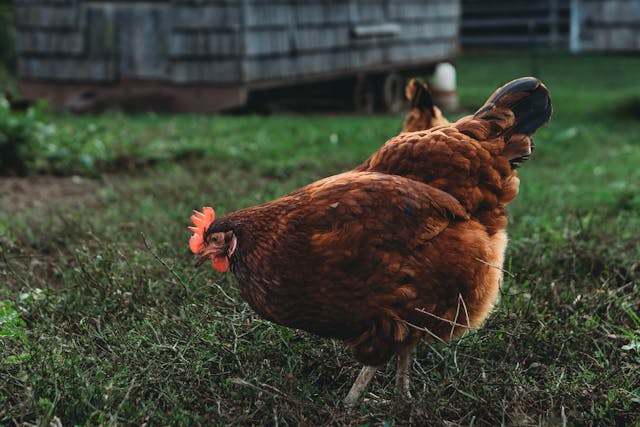

 Connected Vehicle Components
Connected Vehicle Components
 Cockpit Components
Cockpit Components
 Power Train Components
Power Train Components
 Body Domain Components
Body Domain Components
 Chassis Domain Components
Chassis Domain Components
 Component Hazardous Substrances
Component Hazardous Substrances
 Component Failure Analysis
Component Failure Analysis

 Wind Farm
Wind Farm
 PV Inverter / PCS
PV Inverter / PCS
 Energy Storage Battery & ESS
Energy Storage Battery & ESS
 EV Charging Equipment
EV Charging Equipment

 Wireless Communication Products
Wireless Communication Products
 CCC Certification
CCC Certification
 Cybersecurity
Cybersecurity
 Chemical Test
Chemical Test

 Special Dietary Food & Health Food
Special Dietary Food & Health Food
 Feed and Pet Food Supplies
Feed and Pet Food Supplies
 Bee Product
Bee Product
 Food Contact/Packaging Materials
Food Contact/Packaging Materials
 Tea
Tea
 Grain and Oil
Grain and Oil
 E-commerce/Supermarket
E-commerce/Supermarket
 Chain Meal (Tea) Drinks and Hotel
Chain Meal (Tea) Drinks and Hotel
 Water Quality
Water Quality
 Field Service
Field Service
 Popular Detection Index
Popular Detection Index

 Stationery and Educational Supplies
Stationery and Educational Supplies
 Infant and Child Products
Infant and Child Products
 Food Contact Materials (FCM)
Food Contact Materials (FCM)
 Footwear, Luggage & Bags
Footwear, Luggage & Bags
 Textiles & Apparel
Textiles & Apparel

 Management System Certification
Management System Certification
 Product certification
Product certification
 Food & Agricultural Product Certification
Food & Agricultural Product Certification
 Service Certification
Service Certification

 Green Manufacturing
Green Manufacturing
 Energy Management
Energy Management
 Energy Performance Improvement
Energy Performance Improvement
 Government Low-carbon Think Tank
Government Low-carbon Think Tank
 Environment, Society and Governance(ESG)
Environment, Society and Governance(ESG)

 Food label compliance review and design
Food label compliance review and design
 Species identification service
Species identification service
 Supplier & Store Audits
Supplier & Store Audits
 Veterinary Drug Residue Testing
Allergen Component Testing
Domestic and Foreign Food Nutrition Composition Table Test
Food Additives and Illegal Additives Testing
Food Product Certification Testing and Type Inspection
Veterinary Drug Residue Testing
Allergen Component Testing
Domestic and Foreign Food Nutrition Composition Table Test
Food Additives and Illegal Additives Testing
Food Product Certification Testing and Type Inspection
 National Food Safety Supervision Sampling Test
National Food Safety Supervision Sampling Test
 National Food Safety Risk Monitoring Test
National Food Safety Evaluation Sampling Test
Shelf Life Evaluation
National Food Safety Risk Monitoring Test
National Food Safety Evaluation Sampling Test
Shelf Life Evaluation

 Allergen testing on the production line
Transgenic testing
Allergen testing on the production line
Transgenic testing
 Food Glycemic Lndex (GI) one-stop Service
Animal component testing
Pollutant Test
Physical and Chemical Test
Mycotoxin Test
Microbiological Test
Pure additive testing
Food Glycemic Lndex (GI) one-stop Service
Animal component testing
Pollutant Test
Physical and Chemical Test
Mycotoxin Test
Microbiological Test
Pure additive testing
 Food label compliance review and design
Food label compliance review and design
 Health Food Hygiene Test
Health Food Hygiene Test
 Health Food Product Stability Test
Health Food Product Stability Test
 Health Food Raw Material Filing Test
Health Food Raw Material Filing Test

 Health Food Efficacy Ingredients or Iconic Ingredients Testing
Health Food Efficacy Ingredients or Iconic Ingredients Testing
 Toxicological and Functional Evaluation Test of Health Food
Toxicological and Functional Evaluation Test of Health Food

 The Whole Project Test of Formula Food Products for Special Medical Use
Stability Test of Formulated Food Products for Special Medical Use
Full Item Testing of Infant Formula Food Products
Stability Test of Infant Formula Food Products
Sports Nutrition Food Full Item Test
Sports Nutrition Food Stability Test
All Items of Other Special Dietary Foods Were Tested
Chinese Pharmacopoeia Test
The Whole Project Test of Formula Food Products for Special Medical Use
Stability Test of Formulated Food Products for Special Medical Use
Full Item Testing of Infant Formula Food Products
Stability Test of Infant Formula Food Products
Sports Nutrition Food Full Item Test
Sports Nutrition Food Stability Test
All Items of Other Special Dietary Foods Were Tested
Chinese Pharmacopoeia Test
 Verification of Mixing Uniformity of Vitamin and Mineral Premix
Vitamin testing
Verification of Mixing Uniformity of Vitamin and Mineral Premix
Vitamin testing
 Testing of drug packaging materials (YBB standard)
Purified water testing
Testing of drug packaging materials (YBB standard)
Purified water testing
 Special Food and Health Food One-stop Quality and Safety Control Program
Test of Forbidden Agricultural Residues of Chinese Medicinal Materials
Special Food and Health Food One-stop Quality and Safety Control Program
Test of Forbidden Agricultural Residues of Chinese Medicinal Materials
 Species identification service
Species identification service
 Allergen testing on the production line
Allergen testing on the production line
 GB 13078 Feed Hygiene Standard Test
Witness Service
Veterinary Drug Residue Testing
Shelf Life Evaluation
GB 13078 Feed Hygiene Standard Test
Witness Service
Veterinary Drug Residue Testing
Shelf Life Evaluation

 Transgenic testing
Transgenic testing
 Animal component testing
Pollutant Test
Physical and Chemical Test
Mycotoxin Test
Microbiological Test
Pure additive testing
Nutritional Testing of Feed and Pet Food
Ministry of Agriculture and Rural Affairs Announcement No. 20 "Pet Feed Health Regulations"
Animal component testing
Pollutant Test
Physical and Chemical Test
Mycotoxin Test
Microbiological Test
Pure additive testing
Nutritional Testing of Feed and Pet Food
Ministry of Agriculture and Rural Affairs Announcement No. 20 "Pet Feed Health Regulations"
 Cat Food National Standard All Tests
AAFCO Standard Test
Cat Food National Standard All Tests
AAFCO Standard Test
 FEDIAF Standard Test
NRC Standard Test
Cat and Dog Food Three Standards the Most Stringent Test
FEDIAF Standard Test
NRC Standard Test
Cat and Dog Food Three Standards the Most Stringent Test
 Pet Litter Testing
Pet Litter Testing
 Dog Bite Gum National Standard Full Test
Pet Cleaning Supplies Testing
Experimental Animal Bedding Test
One-stop Quality and Safety Control Solution
Dog Bite Gum National Standard Full Test
Pet Cleaning Supplies Testing
Experimental Animal Bedding Test
One-stop Quality and Safety Control Solution
 Efficacy Verification of Food Related Products
One-stop Quality and Safety Control Program for Food Contact/packaging Materials
Efficacy Verification of Food Related Products
One-stop Quality and Safety Control Program for Food Contact/packaging Materials
 Food label compliance review and design
Food label compliance review and design
 Witness Service
100% Inspection
Loading Supervision(LIS)
Supplier & Store Audits
Witness Service
100% Inspection
Loading Supervision(LIS)
Supplier & Store Audits
 Mystery Sampling Inspection
Mystery Sampling Inspection
 Food e-commerce Platform Page Details Page Review
E-commerce/supermarket Compliance Training
Express Inspection Service
E-commerce/Business Super One-stop Quality and Safety Control Program
Food e-commerce Platform Page Details Page Review
E-commerce/supermarket Compliance Training
Express Inspection Service
E-commerce/Business Super One-stop Quality and Safety Control Program

 GB 5749-2022 New Version of Drinking Water Quality 39 Package Test
GB 5749-2022 New Version of Drinking Water Quality 43 Package Test
GB 5749-2022 New Version of Drinking Water Quality 97 Package Tests
GB 5749-2022 New Version of Drinking Water Quality 39 Package Test
GB 5749-2022 New Version of Drinking Water Quality 43 Package Test
GB 5749-2022 New Version of Drinking Water Quality 97 Package Tests
 Production Water Test
Packaged Drinking Water Test
Drinking Natural Mineral Water Test
Field Irrigation Water Testing
Purified water testing
Production Water Test
Packaged Drinking Water Test
Drinking Natural Mineral Water Test
Field Irrigation Water Testing
Purified water testing
 Meal (tea) Drink and Hotel Water Test
Meal (tea) Drink and Hotel Water Test


 Chloropropanol (ester) and Glycidyl Ester
Solanine (α-solanine, α-carsolanine)
Ethylene Oxide
Chloropropanol (ester) and Glycidyl Ester
Solanine (α-solanine, α-carsolanine)
Ethylene Oxide
 Screening for Phenoltine (phenolbutyl), Phenolphthalein and Its Ester Derivatives or Analogues
Screening for Phenoltine (phenolbutyl), Phenolphthalein and Its Ester Derivatives or Analogues
 Pyrroloquinoline quinone disodium salt(PQQ)
Pyrroloquinoline quinone disodium salt(PQQ)
 Fructose 1, 6-diphosphate
Fructose 1, 6-diphosphate
 ISO14001 Environmental Management System Certification
ISO45001 Occupational health and safety Management Systems
GB/T50430 Quality Management Requirements for Construction Enterprises
ISO50001 Energy Management System
ISO 22000 Food Safety Management System Certification
ISO14001 Environmental Management System Certification
ISO45001 Occupational health and safety Management Systems
GB/T50430 Quality Management Requirements for Construction Enterprises
ISO50001 Energy Management System
ISO 22000 Food Safety Management System Certification
 Hazard Analysis and Critical Control Point (HACCP) System Certification
Hazard Analysis and Critical Control Point (HACCP) System Certification
 ISO20000 IT Service Management Certification
ISO27001 Information Security Management System
ISO27701 Privacy Information Management System
ISO27017 Cloud Service Providers
ISO27018 Public Cloud Personal Information Security Management System
ISO20000 IT Service Management Certification
ISO27001 Information Security Management System
ISO27701 Privacy Information Management System
ISO27017 Cloud Service Providers
ISO27018 Public Cloud Personal Information Security Management System

 Enclosure structure and concrete type
Doors, Windows, curtain walls and decorative decoration
Waterproof sealing and architectural coatings
Hvac and solar energy utilization and lighting
Water supply and drainage and water treatment equipment
Other devices
Enclosure structure and concrete type
Doors, Windows, curtain walls and decorative decoration
Waterproof sealing and architectural coatings
Hvac and solar energy utilization and lighting
Water supply and drainage and water treatment equipment
Other devices
 ISO 22000 Food Safety Management System Certification
ISO 22000 Food Safety Management System Certification
 Hazard Analysis and Critical Control Point (HACCP) System Certification
Hazard Analysis and Critical Control Point (HACCP) System Certification
 Good Agricultural Practice Certification (GAP)
Good Agricultural Practice Certification (GAP)
 Antibiotic-Free Product Certification
Antibiotic-Free Product Certification
 Selenium-Rich Product Certification
Selenium-Rich Product Certification
 Low GI Food Certification
Low GI Food Certification
 Ready-to-Eat Product Certification
Ready-to-Eat Product Certification
 Regenerative Agriculture Management Standard Certification
Organic Input Assessment
Regenerative Agriculture Management Standard Certification
Organic Input Assessment
 Carbon Neutrality Certification
Product Carbon Footprint (PAS 2050/ISO 14067)
Zero Carbon Factory Evaluation/Certification
Carbon Management System Certification
Zero-Waste Factory (Park)
CDP Carbon Disclosure Platform
Science Based Targets initiative (SBTi)
EPD Environmental Product Declaration
Corporate Carbon Peaking and Carbon Neutrality Implementation Pathway
Carbon Neutrality Certification
Product Carbon Footprint (PAS 2050/ISO 14067)
Zero Carbon Factory Evaluation/Certification
Carbon Management System Certification
Zero-Waste Factory (Park)
CDP Carbon Disclosure Platform
Science Based Targets initiative (SBTi)
EPD Environmental Product Declaration
Corporate Carbon Peaking and Carbon Neutrality Implementation Pathway
 Corporate Carbon Emission Reduction Implementation Plan
RE100 Initiative
Corporate Carbon Emission Reduction Implementation Plan
RE100 Initiative
 Management System Certification
Management System Certification
 CCC Certification
CCC Certification
 Industrial Product Certification
Industrial Product Certification
 Consumer Product Certification
Consumer Product Certification
 Food & Agricultural Product Certification
Food & Agricultural Product Certification
 Carbon Neutrality Certification
Carbon Neutrality Certification
 Service Certification
Service Certification




























 CN
CN




